Commercial Umbrella Insurance
Backup Coverage for Big Claims
When your standard liability limits aren’t enough, a commercial umbrella policy helps cover the gap. It adds a powerful layer of protection over your general liability, auto liability, and employer liability policies—so your business is protected when things get serious.

What Your Commercial Umbrella Insurance Can Include
Excess Liability Coverage
Extends your liability limits by $1 million or more beyond your existing policies.
Auto Liability Overflow
Adds additional protection for lawsuits related to business-owned vehicles or employee driving incidents.
Third-Party Injury Claims
Covers large medical claims and legal settlements that exceed your general liability limits.
Legal Defense Coverage
Pays for attorney fees, court costs, and settlements—even after your base policy limits are exhausted.
Employer Liability Extension
Provides additional coverage for certain employee-related claims not fully covered by workers comp.
Flexible Policy Options
Available in increments starting at $1 million, with scalable options for growing businesses.
Risk Doesn’t Stop at Policy Limits
West Texas businesses need to plan for the unexpected
No matter your industry, liability lawsuits can escalate quickly—especially if there’s a serious injury, major property damage, or a multi-vehicle accident. In West Texas, where many businesses rely on work trucks, physical job sites, or customer-facing operations, a single incident can expose your company to large-scale claims. Your base general liability or commercial auto policy might cover $500,000 to $1 million—but what if a judgment exceeds that? A commercial umbrella policy helps fill the financial gap and protects your business’s assets, future earnings, and reputation. It’s an essential safety net for contractors, retailers, fleet operators, and anyone with exposure to public risk.
Frequently Asked Questions
How does commercial umbrella insurance work?
It kicks in when a claim exceeds the limit of your primary liability policy. For example, if your general liability covers up to $1 million and you’re sued for $1.5 million, your umbrella policy would cover the remaining $500,000—plus legal defense costs. It doesn’t replace your base policies; it supplements them. It’s an extra layer, not a standalone policy.
Who should have commercial umbrella insurance?
Any business with public exposure, physical operations, or vehicle fleets should consider this coverage. Contractors, manufacturers, property owners, restaurants, and retail stores are all strong candidates. If your company has assets to protect or interacts regularly with the public, it’s worth a closer look. We’ll help you decide if it fits your risk profile.
How much coverage do I need?
Most businesses start with $1 million in umbrella coverage, but many opt for $2 million or more depending on their risk. If you operate multiple locations, own valuable property, or have a history of large contracts, you may want a higher limit. We’ll assess your industry, liabilities, and underlying policies to recommend the right amount. In general, more coverage offers greater peace of mind.
Is it expensive to add umbrella coverage?
Not at all—umbrella policies are surprisingly affordable for the amount of coverage they provide. Many small businesses in Texas can add $1 million in coverage for as little as $500 to $1,500 per year. The cost depends on your industry, claims history, and base policy limits. It’s one of the most cost-effective ways to increase your overall protection.
What types of claims does it help cover?
Commercial umbrella insurance typically covers large liability claims related to bodily injury, property damage, and legal settlements—whether from slip-and-falls, auto accidents, or unexpected lawsuits. It can also help with legal defense expenses that continue after base coverage is exhausted. It’s not for first-party claims (like damage to your own building), but it is essential for major third-party losses.


